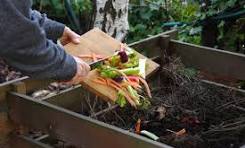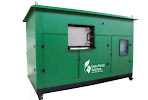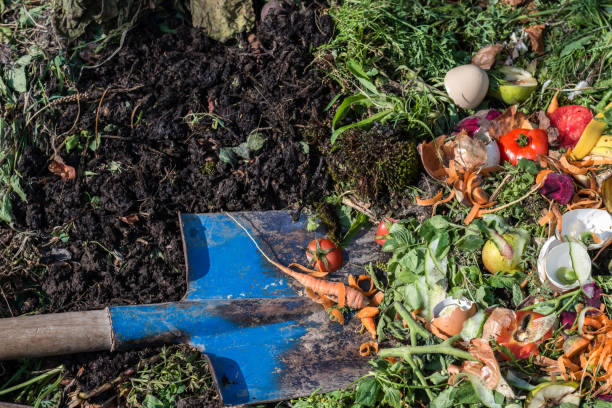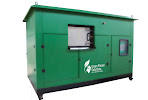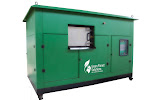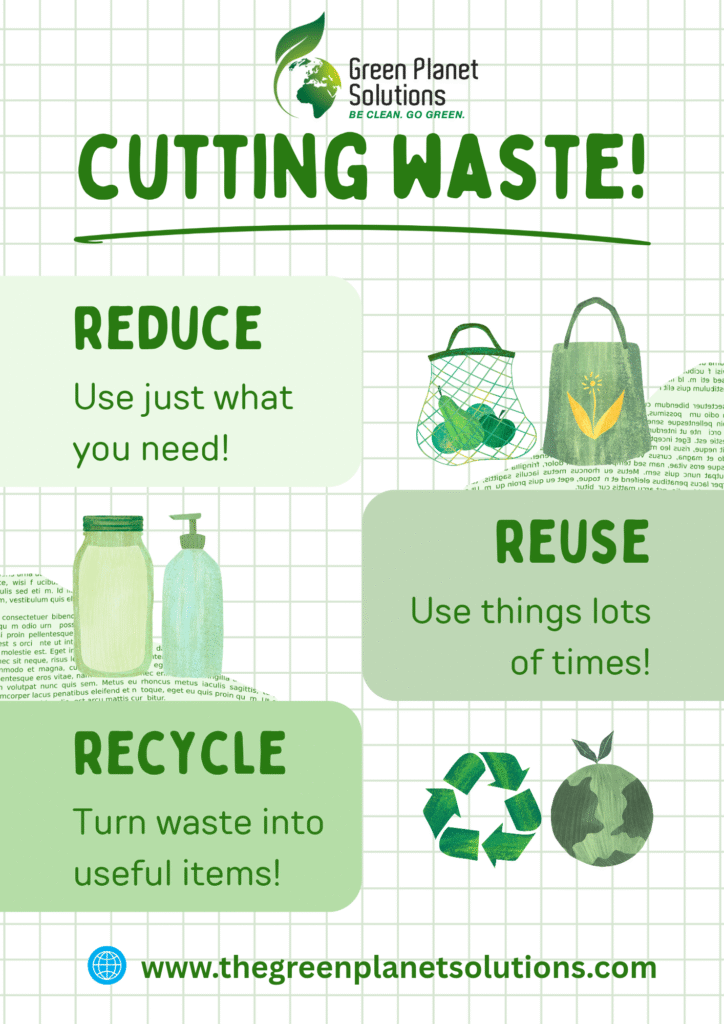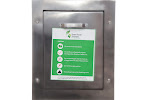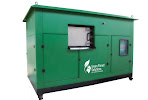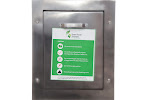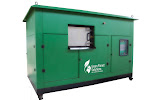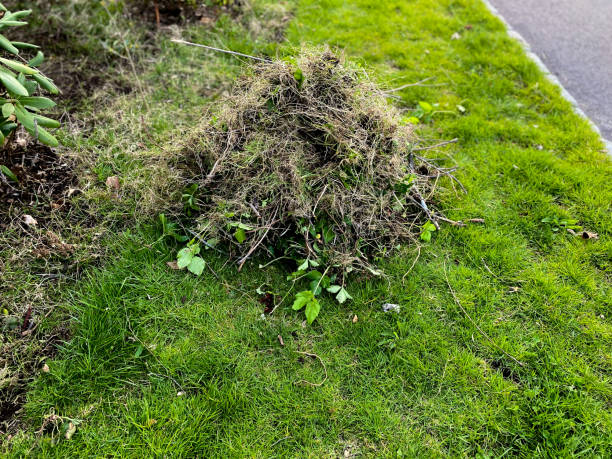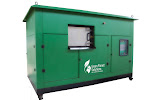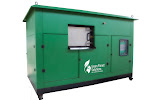ENQUIRE NOW FOR BEST COMPOSTING MACHIES IN INDIA- https://share.hsforms.com/1d12AT_oJScm8iiXbjSrEIwrh2r7
Intro — why this matters now
Indian cities generate millions of tonnes of organic waste every year; when sent to landfills this wet waste becomes a major source of methane and local pollution. Municipalities are increasingly moving composting closer to the source — from household-level systems to community pits, decentralised plants and integrated municipal composting hubs — because composting reduces landfill loads, cuts transport costs and creates soil-amending “black gold” for urban greening and agriculture. Cell+1
ENQUIRE NOW FOR BEST COMPOSTING MACHIES IN INDIA- https://share.hsforms.com/1d12AT_oJScm8iiXbjSrEIwrh2r7
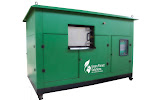
1) The legal & policy backbone: source segregation + local responsibility
India’s Solid Waste Management Rules, 2016 require waste generators to segregate waste at source (wet/biodegradable, dry/recyclables, and domestic hazardous). That legal requirement is the single most important lever pushing cities to build composting capacity — municipalities can’t compost what citizens don’t separate. Municipalities use these rules to design collection schedules, fines, and incentive programs for segregation and onsite wet-waste processing. site.bbmp.gov.in
Quick pull-quote (for social posts):
“Segregate at source — compost at source. That’s the SWM promise for Indian cities.”
ENQUIRE NOW FOR BEST COMPOSTING MACHIES IN INDIA- https://share.hsforms.com/1d12AT_oJScm8iiXbjSrEIwrh2r7
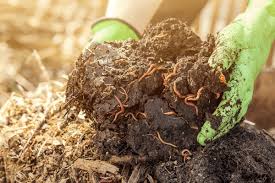
2) The three main composting pathways Indian cities are adopting
Cities typically mix approaches depending on population density, waste volumes and budgets:
- Household & apartment-level composting — vermicompost bins, Bokashi, in-vessel micro-units for high-rise societies. Effective for large housing complexes (Bengaluru and Pune examples show uptake in high-rise sites). BioCycle+1
- Community / neighbourhood composting centres — RWAs, schools, markets and temple complexes set up community pits, windrows or chamber systems; great for dense areas where door-to-door wet collection is feasible. Pune has many such pilots and NGO collaborations. Green Planet Solutions+1
- Decentralised small municipal plants & central compost parks — city block-level digesters, 10–300 TPD plants in larger cities; Delhi’s action plan lists decentralised compost additions and municipal compost plants as part of its strategy. These handle market/catering and street waste that’s been segregated. dpcc.delhigovt.nic.in+1
ENQUIRE NOW FOR BEST COMPOSTING MACHIES IN INDIA- https://share.hsforms.com/1d12AT_oJScm8iiXbjSrEIwrh2r7
3) Tech & process innovations speeding adoption
Cities are pairing traditional composting with modern tech to increase throughput, quality and traceability:
- Decentralised in-vessel units for odour control and faster maturity.
- IoT sensors for pile temperature/moisture monitoring (smart composting).
- Co-composting using agricultural residues (paddy straw, garden waste) to avoid burning and create stable compost.
- Black Soldier Fly (BSF) pilots or larva composting where high-moisture food waste streams exist. ResearchGate+1
4) The economics: why composting is financially sensible
By diverting organics from landfill, cities save on transport and landfill operation costs and generate sellable compost or inputs for city greening programs. Decentralised systems lower haulage costs; community composting can create small livelihoods (waste workers, compost sales). Several Indian cities report meaningful reductions in landfill tonnage after scaling up wet waste management. Cell+1
5) Social & behavioural levers: making citizens partners
Successful composting programs combine policy with on-ground behaviour change:
- Door-to-door training for segregation.
- Incentives (reduced fees, compost vouchers).
- School programs and temple/market partnerships (flower waste composting).
Pune’s municipal programs and NGO collaborations demonstrate the power of local engagement. Green Planet Solutions+1
ENQUIRE NOW FOR BEST COMPOSTING MACHIES IN INDIA- https://share.hsforms.com/1d12AT_oJScm8iiXbjSrEIwrh2r7
6) Common challenges—and how cities overcome them
- Poor segregation → invest in awareness + enforcement (fines + incentives). site.bbmp.gov.in
- Odour & pests → prefer in-vessel or well-managed windrows + training. ScienceDirect
- Variable feedstock → use bulking agents and co-composting with yard/agri residues. ScienceDirect
- Finance & scale → blended funding: municipal budgets + CSR + private operators. ResearchGate
- ENQUIRE NOW FOR BEST COMPOSTING MACHIES IN INDIA- https://share.hsforms.com/1d12AT_oJScm8iiXbjSrEIwrh2r7
7) Short case studies (actionable takeaways)
- Pune — strong municipal emphasis on source segregation, community compost pits, and housing society engagement; many local NGOs and RWAs run composting pilots with PMC support. Takeaway: municipal backing + community NGOs = scale. Green Planet Solutions+1
- Bengaluru — emphasis on on-site composting in multi-dwelling units; decentralised organics management pilots in high-rises reduced transport & landfill load. Takeaway: mandate + tech solutions for high-rise living works. BioCycle
- Delhi — action plans include decentralised compost plants and capacity augmentation for organic fraction processing (explicit capacity targets in municipal action plans). Takeaway: city planning with clear capacity targets is effective. dpcc.delhigovt.nic.in
8) How Green Planet Solutions Pune helps city programs (lead-generation section)
Services we offer for municipalities & RWAs:
- Site assessments & feasibility studies for decentralised compost units.
- Turnkey installation of vermicompost / in-vessel / windrow systems.
- Training modules for waste collectors, housekeeping staff & residents.
- IoT monitoring + compost quality assurance and certification support.
- Business model & PPP design for municipal compost parks.
Client CTA (button/lead magnet idea):
“Book a free 30-minute SWM audit for your RWA or municipality” — landing page collects contact, city, estimated wet waste tonnage.
Primary keyword (high intent): composting in indian cities
Secondary keywords: decentralised composting India, municipal composting India, source segregation composting, community composting Pune, city composting solutions
Search intent: informational → audience: municipal officers, RWA leaders, sustainability managers, CSR teams, urban planners, eco-entrepreneurs.
Suggested meta title: How Indian Cities Are Integrating Composting into Solid Waste Management — Green Planet Solutions Pune
Suggested meta description (150–160 chars): Discover how Indian cities are scaling composting—from household vermicompost to decentralised municipal plants. Practical case studies, policy tips & solutions.
URL slug: /composting-indian-cities-integrating-composting-swm
H1: How Indian Cities Are Integrating Composting into Solid Waste Management
H2 examples: Policy backbone | Composting pathways | Tech innovations | Case studies | How we help
ENQUIRE NOW FOR BEST COMPOSTING MACHIES IN INDIA- https://share.hsforms.com/1d12AT_oJScm8iiXbjSrEIwrh2r7
Suggested schema (JSON-LD): Article with author: Green Planet Solutions Pune, mainEntityOfPage, keywords array (include primary + secondary keywords), publisher organization info.
Internal linking suggestions: link to service pages (municipal solutions, RWAs, composting equipment), local case studies (Pune projects), and blog posts on vermicomposting and community engagement.
Headlines & social snippets (pick one)
- “From Kitchen to Kurkure? No — From Kitchen to Compost: How Cities Are Replacing Landfills with Black Gold”
- Social post: “60% of urban waste in India is organic — here’s how cities are finally putting it to use (and saving money).” Cell
Content structure & word count
- 800–1,200 words — practical, case-heavy, with bold CTAs.
- Feature box: a 200–300 word municipal checklist (segregation, collection, tech, finance, community, monitoring).
- Downloadable asset: “Municipal Composting Implementation Checklist — 1-page PDF” (lead magnet for email capture).
SEO-friendly image ideas
- Infographic: “3 Pathways for City Composting” (household, community, decentralised).
- Before/after photos from Pune community compost pits (with permissions).
- Diagram: SWM flow with composting nodes.
High-value keyword phrases for paid & organic campaigns
municipal composting solutions Indiadecentralised composting units for citiescommunity composting RWA Punecomposting vendors for municipalitieswet waste composting equipment India
#CompostIndia #UrbanComposting #ZeroWasteCities #GreenPune #SWMIndia #DecentralisedCompost #WasteToWealth #GreenPlanetSolutions
#CompostForCities #RWASegregationDrive #PuneComposts #MunicipalCompostSolutions #UrbanSoilHealth
- “Request a FREE municipal composting feasibility report”
- “Get a 1-page RWA Composting Checklist — Download”
- “Schedule a demo of our in-vessel composting unit (20-50 kg/day)”
Common words (SEO friendly & readable): compost, waste, city, district, municipal, community, program, train, implement, cost, benefits, manage, collect.
Uncommon words (authority / specificity): co-composting, bulking agent, in-vessel, windrow, anaerobic, maturation, leachate, bio-inoculant.
Power words (use in CTAs & headers): proven, guaranteed, rapid, scalable, turnkey, cost-saving, tested, certified.
Emotional words (use sparingly to stir action): transform, reclaim, rescue, empower, protect, reclaim, legacy.
“Every day, thousands of tonnes of kitchen scraps, market waste and garden clippings leave Indian homes en route to landfills — where they rot and release methane. But a quiet revolution is underway: cities from Pune to Bengaluru are closing the loop with decentralised composting, community pits and apartment-level systems that turn wet waste into nutrient-rich compost. Here’s how they’re doing it — and how your RWA, municipality or business can join the movement.” Green Planet Solutions+1
Measurement: KPIs to include in the blog (and to check after promotion)
- Page views & average time on page (target >2:30)
- Organic rankings for primary keyword (target top-3 in 3 months)
- Leads generated (downloads, audit bookings) — track conversion %
- Backlinks from municipal/NGO sites & industry portals
If you want a ready-to-publish Word/HTML blog + 1-page municipal checklist PDF and an email capture form copy, I’ll create the pack tailored to Pune (including local case data & one custom CTA). Reply “Create pack — Pune” and I’ll generate the blog, checklist PDF and social snippets right away.
Sources & further reading
- Solid Waste Management Rules, 2016 (Govt. of India). site.bbmp.gov.in
- Decentralized Organics Management In Urban High Rises (case examples). BioCycle
- Pune municipal composting initiatives & community projects. Green Planet Solutions+1
- Delhi action plan (decentralised compost plants capacity). dpcc.delhigovt.nic.in
- Recent analysis of municipal organic fractions & composting opportunities. Cell+1

– https://www.thegreenplanetsolutions.com/
 – +917722073961
– +917722073961
Instagram – https://www.instagram.com/greenplanetolutions2013?igsh=MTQ5MWxpeng5dmtvaA==
Facebook – https://www.facebook.com/share/19Eim5u2Ep/
Linkdein – https://www.linkedin.com/company/green-planet-solutions/
Threads – https://www.threads.net/@greenplanetolutions2013
YouTube – https://youtube.com/@greenplanetsolutions2013?si=0gkKEahaaB5z6csm
